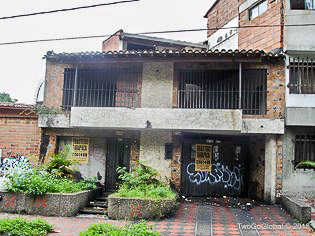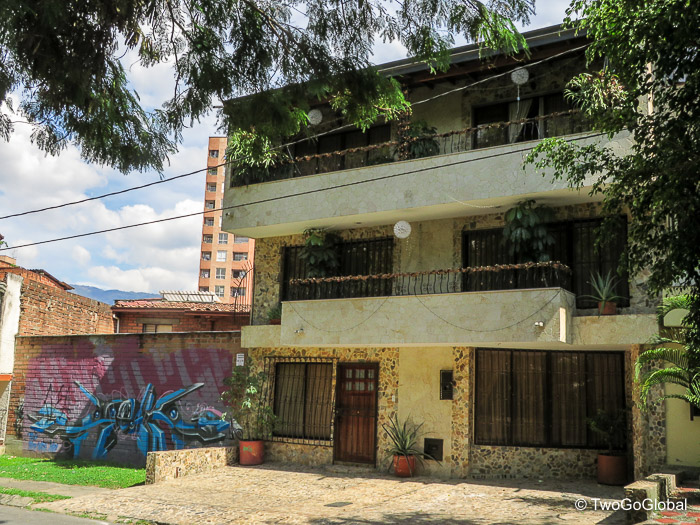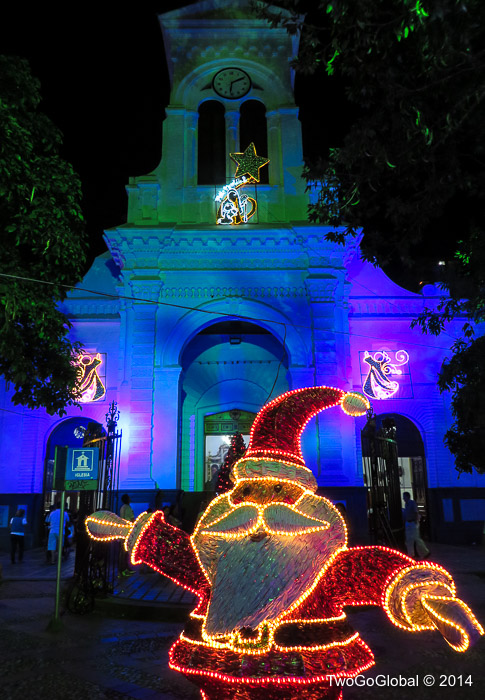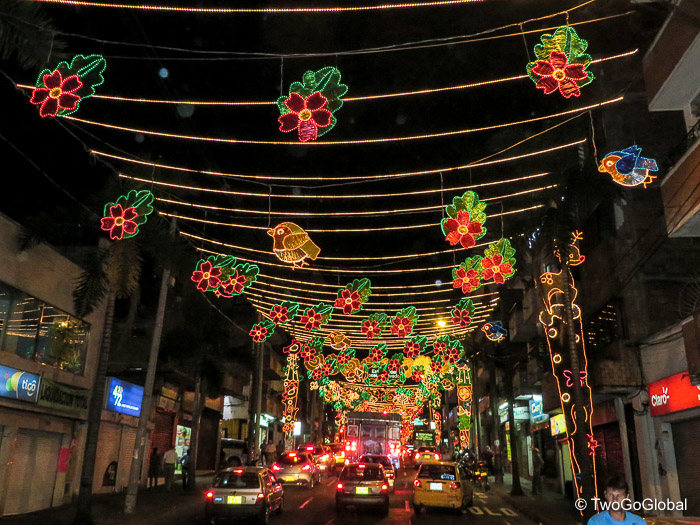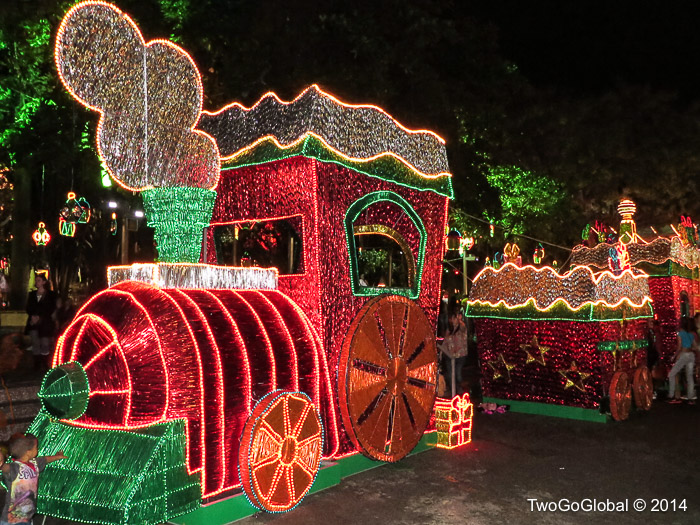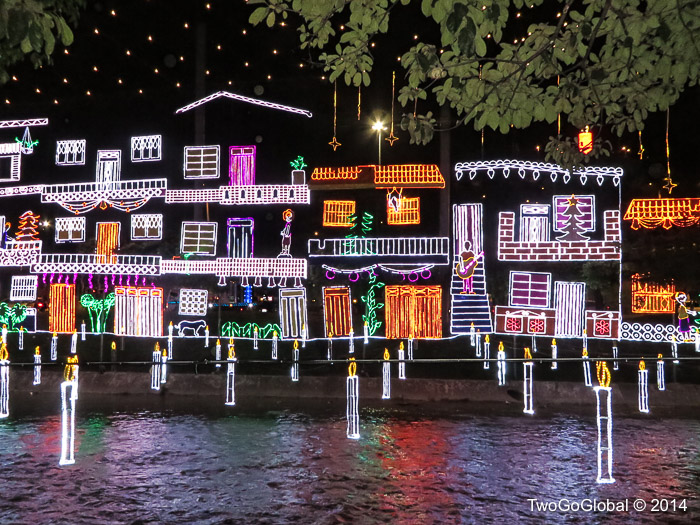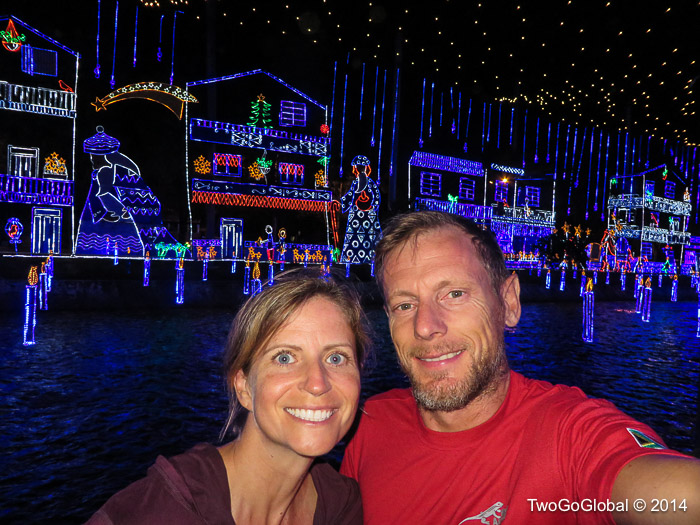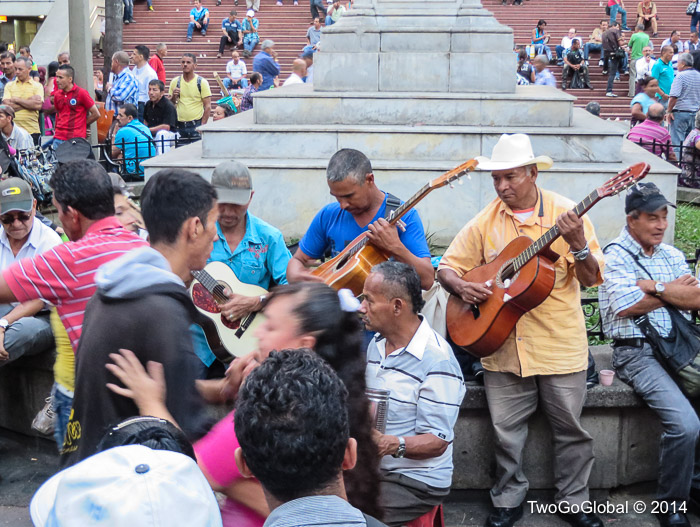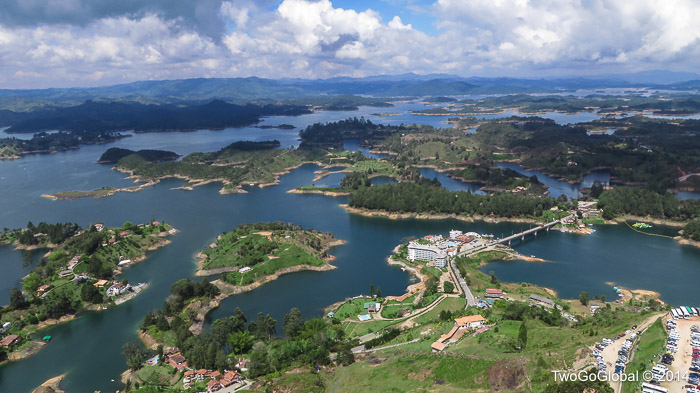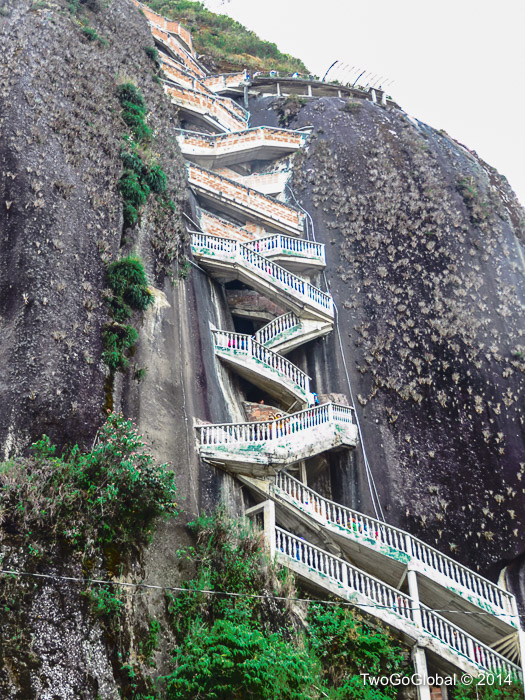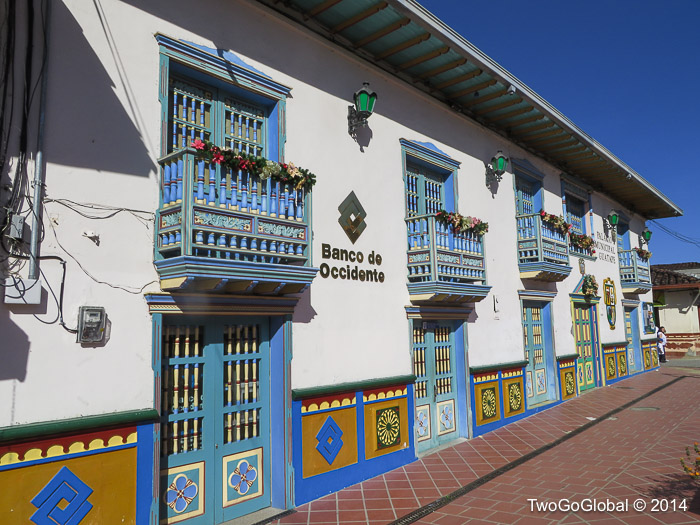Medellin, the city of eternal spring, and once the world’s deadliest city with 381 homicides per 100,000 people, equivalent to 32,000 murders per year in New York City, is so far one of our favorite places to visit in Colombia. Safety has improved vastly since the death of Pablo Escobar and the dismantling of the Medellin drug cartel, with various urban projects enriching the lives of the people that call the city home. We arrived on New Year’s Eve from Cartagena by way of a $40 Avianca flight, in our eyes a total bargain, especially when the bus is around fourteen hours and fifty percent more money! The worst part of flying is that the newer airport is 38km from the city making for an expensive taxi ride.
We stayed at Hostal Casa Ram, close to the busy Parque Lleras in the El Poblado district, an upper class part of the city full of bars, restaurants and hostels. Not a bad place to spend NYE, or so we thought. Colombians tend to spend the night at home with friends and family, at least until after midnight, with many heading out to the limited bars opening their doors at this late hour. We hooked up with a bunch of other backpackers from the hostel, and sat drinking and playing cards until heading out at around 2am, at least I did, with Andrea deciding to hit the sack. The bars by now were buzzing with Paisas, the name given to residents of Medellin and the Antioquia department. Paying $3 for a beer was getting too expensive and by 4am it was time to head back to Miss Sleepyhead!
I’d already been offered cocaine on numerous occasions but hadn’t noticed that it’s usually from the same people that have a tray strapped around their necks selling chewing gum, chiclets, cigarettes and other candy. We had heard that Paisas live a very fine line between legal and illegal, often teetering on the edge where the police tend to turn a blind eye. Not sure if that was the case here but the dealers weren’t being too discrete.
With New Year’s Eve over and done with we now had to find something to occupy the first day of 2014, expecting most places to be closed we headed to the metro on the first step of our personal Pablo Escobar tour. After the infamous drug trafficker was eventually shot and killed on December 2, 1993 he was buried alongside his parents at Cemetario Jardins Montesacro in Itagui, a suburb to the south of Medellin. We got off the metro and asked a taxi driver to take us the graveyard, where he even showed us the location of the family burial site – we waited for a young woman to move away from Pablo’s headstone before I felt comfortable taking photos. Either she was one of the many poor people in the city who he actually helped or she was family, with the latter being more realistic. It felt strange to be taking the time to visit the grave of a man who was responsible for so much violence and death!
If we were to mimic the $20+ Pablo tours then the next stop would have been the Monaco Building, which was bombed by the rival Cali cartel in an assassination attempt on Pablo Escobar’s family. We got distracted by the city and never made it this far. The aura surrounding this merciless cartel leader, some would say Robin Hood character who also built homes for and employed the poor and still revered by many today, captured my fascination so much so that I couldn’t put down Killing Pablo, a book by Mark Bowden about the hunt and eventual death of the worlds most wanted man.
Christmas Lights
Medellin this time of year is all about its Christmas lights, illuminated from the beginning of December until well into January. Throughout plazas, shopping malls, homes and parks everywhere the city and the surrounding neighborhoods are alive with color. Rio Medellin in the downtown area was the hotspot for sure.
To experience this atmospheric extravaganza we took the advice of Dave Lee from Medellin Living and headed out one evening to three municipalities and the Medellin river. For under $20 in metro and taxi fares we got to see the central parks of Sabaneta, Itagui, and Envigado, with a finale on Rio Medellin. Dinner was en route, with each location we got our fill of the local food… buñuelo (a deep fried ball of cheese) in Sabaneta, arepas in Itagui, and empanadas – far from healthy but tasty all the same!
We hadn’t expected such busy plazas with it being almost a week into January already, unless we had chosen the same night as a million Colombians. Families of all ages were out enjoying the festivities, getting covered with fake snow, chowing down street food and generally having a great time – it showed that Colombia is in the top five of happiest countries on the planet.
Rio Medellin was like a zoo, with masses of people casually strolling along the river, trying to get family photos in front of the lights without strangers in the frame – next to impossible. The lights went on for what seemed like a couple of miles, with each section being a different color, candles suspended over the river and lights mimicking stars in the sky. With each year comes a new and unique theme, not too unlike the floats parading through the Sambadromo in Rio each Carnival, something that must be a year long full-time job for many people due to the sheer number of lights and creations. However mesmerizing the displays were it was great to finally get to the end and head back to the hostel for the night!
Free City Walking Tour
It seems like we only go for the number one placed accommodations, restaurants and attractions from Tripadvisor, and as is usually the case it works out very well for us. Pablo, the owner of Real City free walking tours, and a very passionate Paisa was the guide for our four hour afternoon tour of Medellin’s El Centro. When someone is working only for tips it usually pays to go above and beyond and Pablo definitely earned his tip, from his knowledge of both Medellin and Colombian history to stories, descriptions and urban legends.
A couple of the things that stuck in my mind from the tour are…
We both felt that we knew Medellin and its people far better after the tour, and could see how proud they were of an impressive, amazingly clean Metro system, open spaces that were transformed from dangerous hell holes into places worth visiting, and plazas galore, especially considering what they had been through over the previous decades. Colombians are some of the happiest people on the planet and have a very good knack of blocking out their violent history.
Guatape and La Piedra del Peñol
Located 78km from Medellin making for an extremely popular weekend getaway for Paisas and foreigners alike, the quaint and colorful town of Guatape sits on the shores of a picturesque man-made reservoir. Just 3km before reaching Guatape is La Piedra del Peñol, a 200m high free standing rock with a nifty little staircase conveniently wedged into a crack in the rock face. The 740 steps leading to the summit would have made for a great workout if half of Colombia hadn’t chosen the same day as us to visit!
The reservoir, flooded for the Peñol-Guatapé dam provides waterfront access to many homes and estates dotted throughout the islets and coves. Pablo had made much of the area surrounding Guatape off-limits due to his notoriety and with the construction of La Manuela, his estate on the shore with helicopter pad and lakefront landing strip. Nowadays it’s popularity is booming once again.
We didn’t get to spend so long in the town, with just enough time to wander the colorful streets, grab lunch and chill out people watching in the square, something we’ve gotten very good at on our travels around Latin America. This area is best visited during the week when the people of Medellin are hard at work.
December 31st 2013 – January 8th 2014




